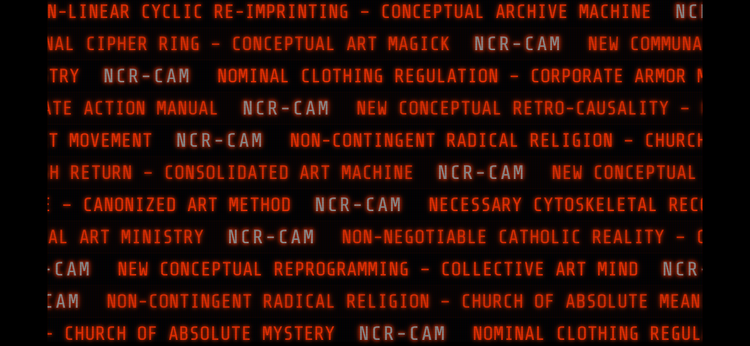N+1’s Large Language Muddle summarized

source: (https://www.nplusonemag.com/issue-51/the-intellectual-situation/large-language-muddle/)
Large Language Muddle → The SGWS Cut
TL;DR (for busy warriors)
- “AI-and-I” essays keep telling us the same story: we’re doomed but dazzled.
- LLMs remix dead labor into passable prose and sell it back to us as “intelligence.”
- The costs are real: deskilled work, cognitive debt, energy burn, and a cultural palate trained on slop.
- We don’t have to accept it. Build an ear, set hard norms, teach the difference, organize, and stigmatize the junk.
- Luddite isn’t technophobia; it’s tech-politics. Opt out where the tool extracts more than it enables.
The Setup: Why all the smart takes sound the same
A whole genre now exists where writers investigate AI while quietly bracing for their own obsolescence. The cadence is familiar: open with dismay, test a chatbot, confess a little awe, end in resigned wonder. Call it the AI-and-I essay. It registers something true—LLMs got good enough, fast enough, to rattle anyone who lives by reading, thinking, teaching, or editing.
But sameness is the tell. When every piece lands on “humans are beautifully flawed” as the defense, we’re already playing on the machine’s field. “Failure makes us human” is not a strategy. It’s a eulogy.
The Receipts (from the source material)
- Campus reality: a lot of students use LLMs weekly; cheating ranges from “some” to “most,” depending on the survey.
- Cognitive cost: experiments show narrower neural engagement and cliché drift with LLM crutches—cognitive debt is a real risk.
- Labor politics: AI rides on dead labor—decades of writing + today’s clickwork—fetishized as “instant intelligence.”
- Physical footprint: massive water, power, and cash burn—single-use plastic for the mind as a business model.
- Governance drift: “partnership” narratives push us toward dependence while undercutting the very skills they replace.
- Counterexample we can learn from: the WGA strike drew a line—no replacement, no requirement, standard pay if a writer chooses to touch GenAI.
(We’re not adjudicating every number; we’re capturing the thrust: costs compound, benefits are mostly convenience, and the culture bill is due.)
The SGWS Reframe: Intelligence vs. Intelligence Theatre
Let’s strip the branding. LLMs are synthetic text machines—stochastic parrots trained to autocomplete vibes. Useful? Sure, sometimes. Thinking? No. The danger isn’t that they’re too smart; it’s that we accept “smart enough” and reorganize human systems around it. That shift quietly:
- deskills creative and critical labor,
- hollows the reader’s ear,
- turns education into moderation,
- and normalizes approximation as culture.
We don’t defend humanity with misty paeans to error. We defend it with craft, standards, and refusal.
What To Do (the SGWS Playbook)
1) Editors & Publishers
- Zero-slop policy. No AI-first drafts, no “just to get started” lies. Publish work with fingerprints: sourceable detail, non-template structure, earned surprise.
- Declare provenance. If any tool touched the piece, say how—and why the human decisions still matter.
- Reward the ear. Commission writing that resists cliché on purpose; put money where originality lives.
2) Educators (within constraints)
- Assess where the bots can’t help. In-class writing, oral defenses, blue-books. Not as nostalgia—as pedagogy.
- Teach the difference. Side-by-side clinics: “spot the synthetic.” Practice bullshit detection as literacy.
- Assign craft, not grind. Fewer prompts, deeper drafts, iterative critique. Make the human loop visible and valuable.
3) Writers & Researchers
- Use with intent or not at all. If a tool is a calculator, great—then treat it as one: bounded, declared, checked.
- Write past the template. If you can hear the LLM cadence in your own draft, keep going until you can’t.
- Keep a human stack. Primary sources, notebooks, interviews, marginalia—habits that don’t collapse into autocomplete.
4) Institutions & Unions
- Codify limits. No replacement by AI, no compulsory tool use, standard rates regardless.
- Audit the footprint. Count cost (power, water, cloud bills, moderation labor) against actual outcomes. Publish it.
- Organize standards. Cross-discipline norms for disclosure and acceptable use beat platform policy any day.
5) Culture & Norms
- Stigmatize slop. It’s fine to say: that reads machine-chewed. Shame still shapes taste.
- Celebrate the handmade. Provenance as prestige: drafts, process notes, the how behind the what.
- Be publicly Luddite where it matters. Luddism is not anti-tool; it’s anti-extraction. Break bad incentives, not hammers.
The Ear: A quick field guide to synthetic prose
When in doubt, read for:
- Cadence flattening: every paragraph lands on the same “balanced” sentence.
- Prefab framing: “On the one hand… on the other… the truth is somewhere in the middle.”
- Citation fog: impressionistic stats, hedged sources, no texture from real encounters.
- Idea drift: clever starts that never sharpen into a stake in the ground.
- Cliché creep: “ever-evolving landscape,” “unlock potential,” “harness the power,” rinse-repeat.
If you can predict the next sentence, it’s probably machine-shaped—or human writing in machine mimicry. Either way, send it back.
The Politics (say the quiet part out loud)
Privately-owned AI is an extraction engine dressed as a productivity aid. The more “frictionless” it gets, the more frictive the world around it becomes (for workers, for grids, for classrooms, for minds). Resignation is marketing’s win condition. Disenchantment is ours.
The SGWS Oath (pin this by your desk)
- I will not publish or assign slop (other than for the purpose of dismantling or highlighting said slop).
- I will disclose tool use and defend human judgment.
- I will teach the difference and grade for thinking, not templating.
- I will favor unions over platforms and provenance over hype.
- I will be joyfully, selectively Luddite—breaking the incentive, not the craft.
We don’t need permission to do this. We need practice, policy, and a shared taste for the real thing.
End scene: not man-versus-machine, but culture-versus-concession. Please choose culture.






Member discussion